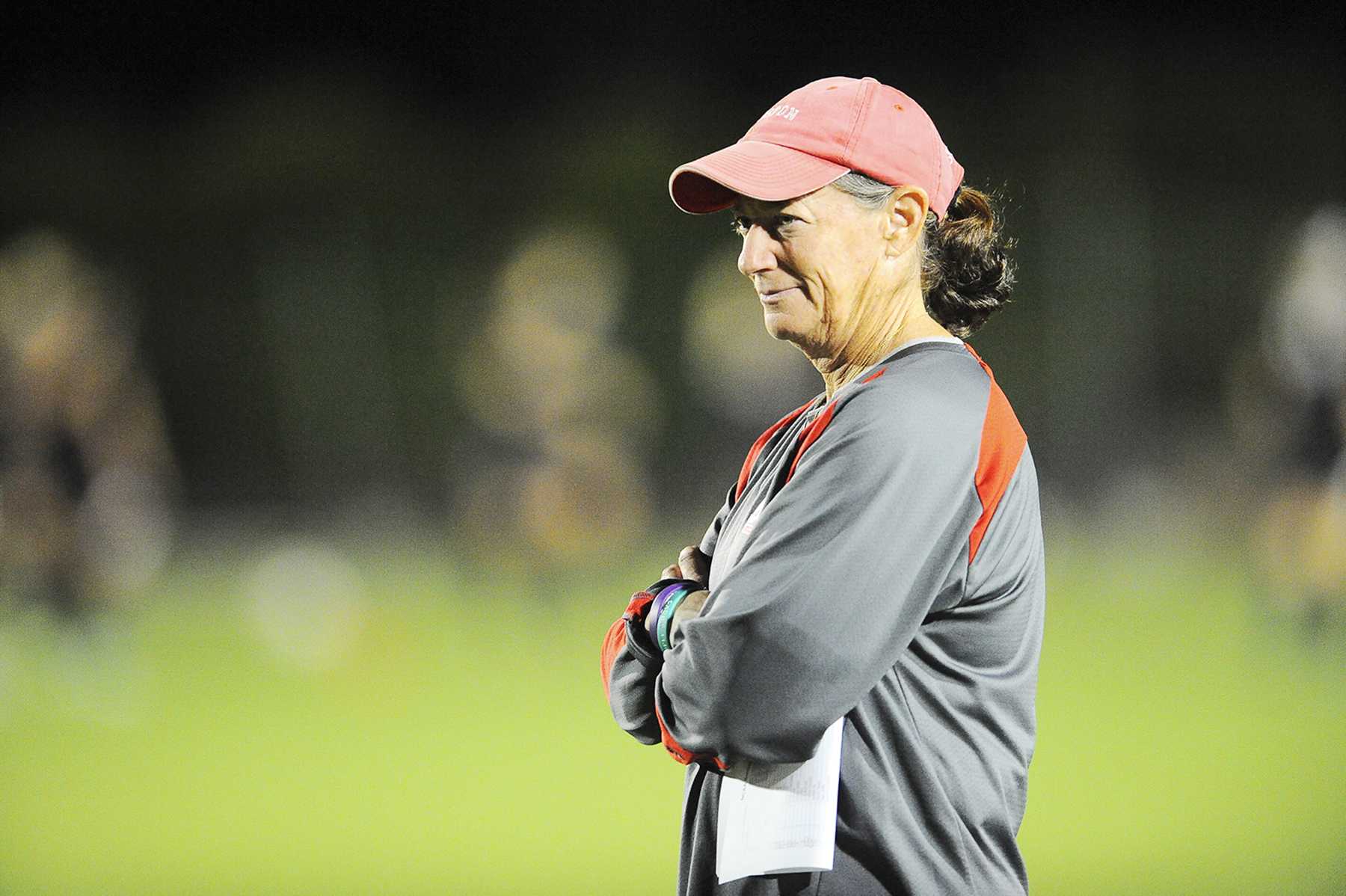Ninety-nine former Boston University women’s soccer players and coaching staff signed a statement in support of former head coach Nancy Feldman amid allegations of sexual harassment, according to a letter obtained by The Daily Free Press.
“We were never at risk of or witness to inappropriate behavior or anything that could be characterized as sexual harassment,” the letter, dated June 13, states.

PHOTO COURTESY STEVE MCLAUGHLIN
The letter follows the release of BU women’s soccer alum and podcaster Alex Cooper’s new docuseries, in which she accuses Feldman of sexual harassment. Cooper played for the Terriers for three seasons from 2013-2015.
Stephanie Dreyer, a member of the team from 2003-2007, said the allegations were “a big shock to the BU women’s soccer community.”
“We felt compelled as a community to speak up because the collective experience of the 99 community members who signed that letter was fundamentally different from what is being alleged,” Dreyer said. “We want to make sure that the entire story is being told to ensure that people understand Coach Feldman’s full character.”
The 99 signers span nearly three decades — from classes of 1996 to 2025 — and include both named and anonymous alumni.
Dreyer said many of the anonymous signatures were student-athletes who were on the team with Cooper but feared retribution if they provided their names.
“Cooper has said publicly that she waited 10 years to come out with these allegations until she had the power to do something about it,” she said. “She has made very clear that she is going to go after anyone who tries to stand in her way, so there was some apprehension, but ultimately, those individuals did sign.”
Despite initial hesitation from some signers, a sense of loyalty motivated the group to follow through with the letter of support, Dreyer said.
“When you have someone who gives so much to you as a person for so long, you feel compelled to give back when that person is hurting,” Dreyer said. “All of us just got together on an email … We worked out the language, and then it was a matter of getting everybody to sign.”
Rebecca Beyer, a member of the team from 2000-2003, wrote in a statement to The Daily Free Press that many BU women’s soccer alumni “felt strongly about coming forward” with their shared experiences.
“Over decades, we never saw Coach Feldman act, or heard of her acting, in any way that could be characterized as sexual harassment,” she wrote.
Beyer wrote Feldman has been a “mentor and friend” to her since Beyer’s departure from the program.
“I chose to play soccer at BU in part because I respected Coach Feldman and her professional approach to the team and the program,” Beyer wrote. “I felt that way during my four years on the team, and I continue to feel that way today.”
Dreyer also discussed the broader context of Division I athletics and the guidance that coaches are expected to provide within that environment.
“Playing for a Division I program is a privilege, not a right, and it comes with a lot of pressure and a lot of responsibility,” she said. “Sometimes that experience is going to be difficult. It’s your coach’s responsibility to push you outside of your comfort zone to make you the best person that you can be.
Dreyer said the intensity and structure of a Division I program also require athletes to be accountable for their actions.
“When you are a Division I athlete, there are expectations that you will follow the rules, that you will come to practice, that you will show up and that if you break a rule, or if you do not follow the appropriate code of conduct, there will be consequences,” she added.
The letter states that Feldman was a “leader” who “approached every day with professionalism.”
“We had a shared understanding and a shared sense of pride in the university, and that is what [Feldman] created. She created an environment and a group of people that you were proud to know and proud to be a part of,” Dreyer said. “This experience with [Cooper] has been just so jarring because it’s such a departure from what everybody else has felt over the years.”
The letter concludes, “[Feldman] has remained an important part of our lives, and we stand by her.”






















































































































